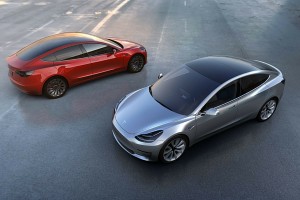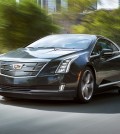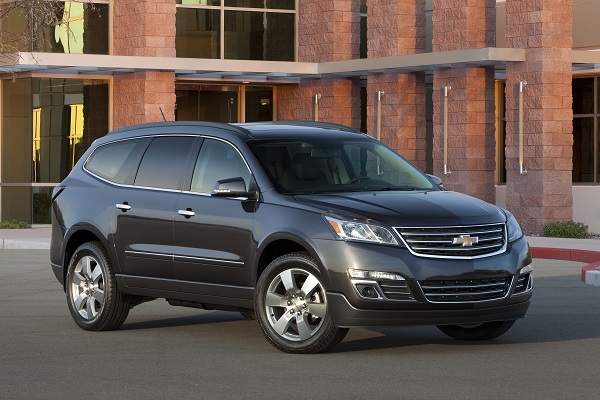EPA Releases Not-So-Hot Fuel-Economy for the 2015 Mustang
 2015 Ford Mustang GT (Credit: © Ford)
2015 Ford Mustang GT (Credit: © Ford)The 2015 Ford Mustang brought about a clean-sheet redesign for the aging pony car, and it got better in nearly every way. The design is sharper than ever before; the rear suspension is finally an independent setup, and the addition of a new, EcoBoost four-cylinder gives buyers more options. But with the release of the EPA-estimated fuel economy for the 2015 Mustang, we find out that the new `Stang isn’t completely better than the outgoing model.
» Related: Chances are the Ford GT's Wheels Cost More Than Your Car
The base 2015 Mustang with the 3.7-liter V-6 and a six-speed manual transmission receives EPA marks of 17 mpg city, 28 mpg highway and 21 mpg combined, while the auto-equipped model’s ratings are 19 mpg city, 28 mpg highway and 22 mpg combined. In 2014, the same models got 19 mpg city, 29 mpg highway and 22 mpg combined, and 19 mpg city, 31 mpg highway and 23 mpg combined, respectively. This data makes the 3.7-liter-powered Mustang as much as 2-mpg less efficient than the outgoing model.
Moving into the GT model doesn’t make things any better, as the manual-equipped 2015 Mustang GT gets 15 mpg city, 25 mpg highway and 19 mpg combined, whereas the 2014 model got 15 mpg city, 26 mpg highway and 19 mpg combined. The auto-equipped 2015 Mustang GT gets 16 mpg city, 25 mpg highway and 19 mpg combined, while its 2014 counterpart got 18 mpg city, 25 mpg highway and 20 mpg combined. Like the V-6 model, the 2015 Mustang GT suffers up to a 2-mpg drop in fuel efficiency when compared to the 2014 model.
There wasn’t an EcoBoost model in 2014 for comparison, but the EPA rated this new four-pot model at a not-overly-impressive 22 mpg city, 31 mpg highway and 26 mpg combined with the manual transmission, and 21 mpg city, 32 mpg highway and 25 mpg combined with the auto transmission.
There are no details on where the fuel-economy disconnect is here, and Ford has been unsurprisingly quiet on the release of these numbers. Whereas most manufacturers are quick to point out increases EPA-estimated fuel economy numbers, Ford has yet to list the 2015 Mustang’s numbers on its media page.
What’s even more mind-boggling is the fact that the GT Mustang doesn’t have a ton more power than the 2014 model, and the V-6 model has five fewer horsepower than the outgoing model. On top of that, Ford claimed in its press release for the 2015 Mustang that the GT model’s new intake manifold improves the air-fuel mixture, resulting in “improved efficiency,” which is now untrue.
Needless to say, this is an interesting development that we’ll keep an eye on moving forward. We’ll bring you any updates from Ford on these fuel economy decreases.



















Lonnie Beerman
Sep 23, 2014 at 11:05 am
Since when has the Mustang been considered an “economy” car?
Not since the original year, when it was marketed as a “fun, affordable” car, has the Mustang been looked at as anything other than a potential muscle car.
I drive a 3003 Mach 1, and I get better mileage than those numbers…..19 city & 24 highway….with my 4.6 dual overhead cam V-8.
I keep it clean, inside & out, and always in tune.
A bigger, stronger engine has to work less than a screaming 4-banger to get the same work done. Torque gets you moving, and horsepower keeps you moving faster. A little engine has to work a lot harder to get you moving and keep you up there.
Keep your engine clean and tuned, and keep the lead out of your foot. Take care of it….and it will take care of you.
paganpink
Sep 26, 2014 at 2:49 am
“Efficiency doesn’t just mean MPG! It can mean increased horsepower for it’s engine displacement or even things as simple as improved fuel injectors, etc.. Automakers use the term efficiency to mean a number of different things
Justin
Oct 1, 2014 at 6:29 pm
There are certain hot words in the automotive field that mean specific things, and “efficiency” nine times out of 10 means fuel efficiency. I will give them the benefit of the doubt there though. However, a drop in mpg between years when all else remains essentially the same is not a good thing in this day and age.
jerrygct
Sep 26, 2014 at 1:07 pm
The question is….why does Ford continue producing the 5.0L V8 with multi-port fuel injection versus conversion to direct injection? The direct injection would produce more power but more efficiency. Plus the V8 should be tuned with economy, normal, and sport power settings not unlike some European cars.